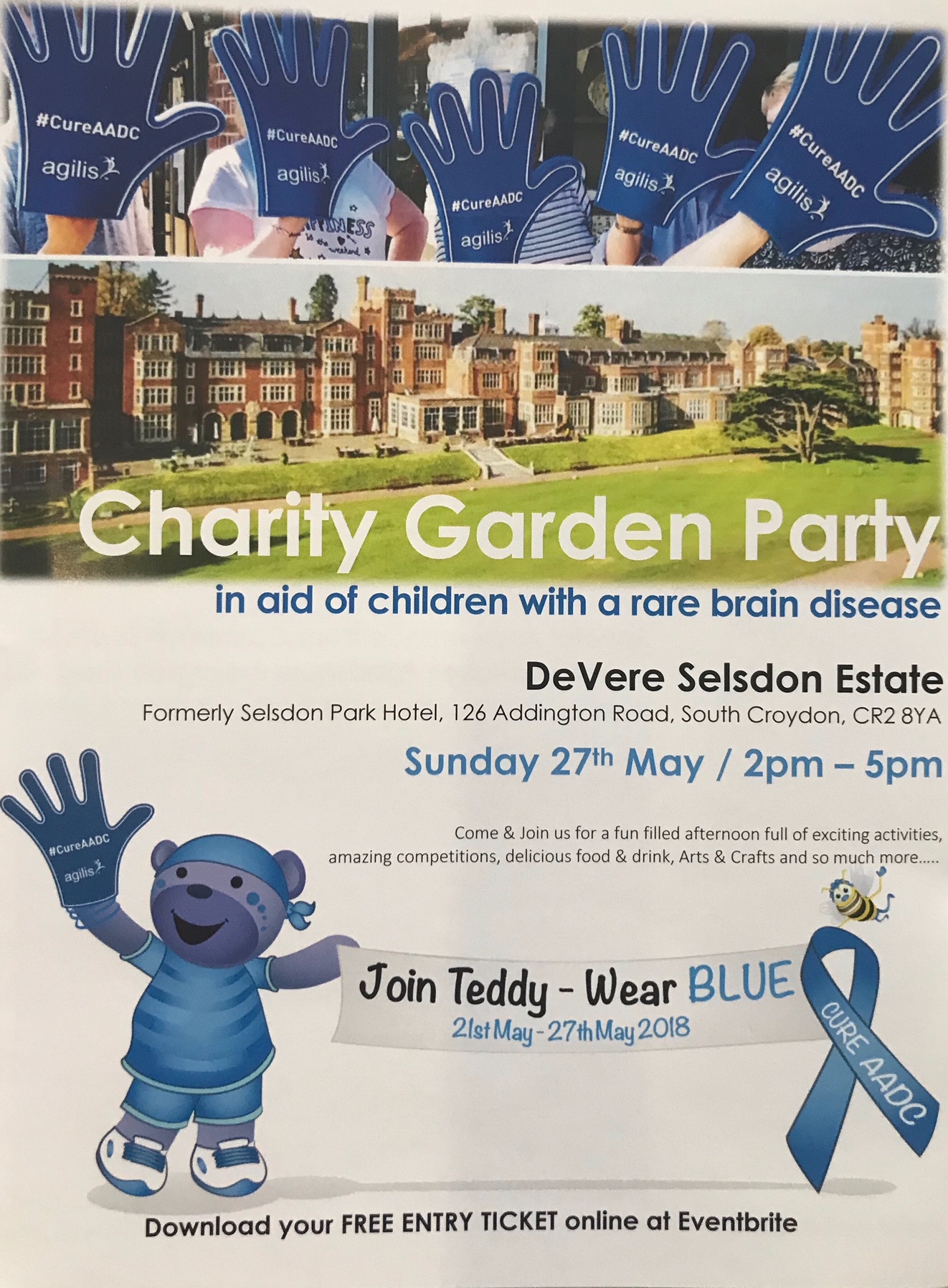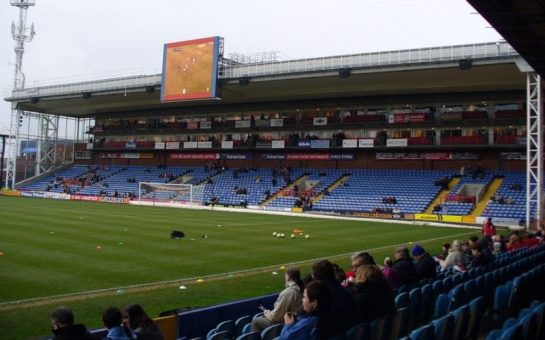A charity garden party to raise awareness for a rare brain disease is taking place in Croydon this weekend.
The De Vere Selsdon Estate will play host to a range of activities including a teddy bear picnic, a photoshoot and pop-up stalls for the AADC Research Trust Children’s charity on Sunday 27 May.
Event organisers Julie Ramsay, Lesley Slevin and Lisa Flint aim to raise awareness for AADC (Aromatic Amino Acid Decarboxylase Deficiency) – a rare brain disease that impacts young infants in many ways, including their ability to walk and talk.
AADC Research Trust founder and managing director Lisa, 51 said: “Most of the charity’s children are in wheelchairs, lack mobility, head control and speech.”
The charity garden party will also include ‘The Big Wave’ to commemorate the children and young people with AADC who have lost their lives.
“The Big Wave is for all the children we have lost and to let them know that we will never forget them,” said Lisa.
“Although the majority respond to medication it does not make dramatic changes to the outcome which is incredibly sad as we are losing children at a greater pace than we are picking them up.”

There are more than 100 children across more 30 countries who have been correctly diagnosed with the AADC.
Lisa, who founded the charity in 2006, is well aware of the implications of misdiagnosis.
Her son Jake Flint, was the first British child to be correctly diagnosed with AADC in 2001 after the family were told that it was Cerebral Palsy.
Lisa said: “I’m pretty sure that if we had not had a correct diagnosis we would have been in serious trouble.”
Lisa hopes that with the support and funding more research that ultimately a cure will be found to help prevent the disease.
“We can hope for improved treatment strategies and everything that we have worked on so far coming to fruition,” she said.
“To work with diagnosis groups so that children are correctly diagnosed. The more we understand the better we are at diagnosing children the better we are at improving treatment strategies.”
AADC is a rare brain disease that is a genetically-inherited neurological disorder affecting the brain’s ability to produce neurotransmitters, dopamine and serotonin.
AADC deficiency affects the way signals are passed between certain cells in the nervous system and infants may experience symptoms of extreme pain, including muscle stiffness and muscle spasms.
Other symptoms, include feeding poorly, low blood sugar levels and extreme irritability.
This week is the charity’s international awareness week and is the second annual AADC ‘Teddy Bear Blue’ awareness campaign.
The free charity garden party is on Sunday March 27 from 2pm-5pm.
To find out more about AADC Research Trust Children’s Charity please visit their website.




